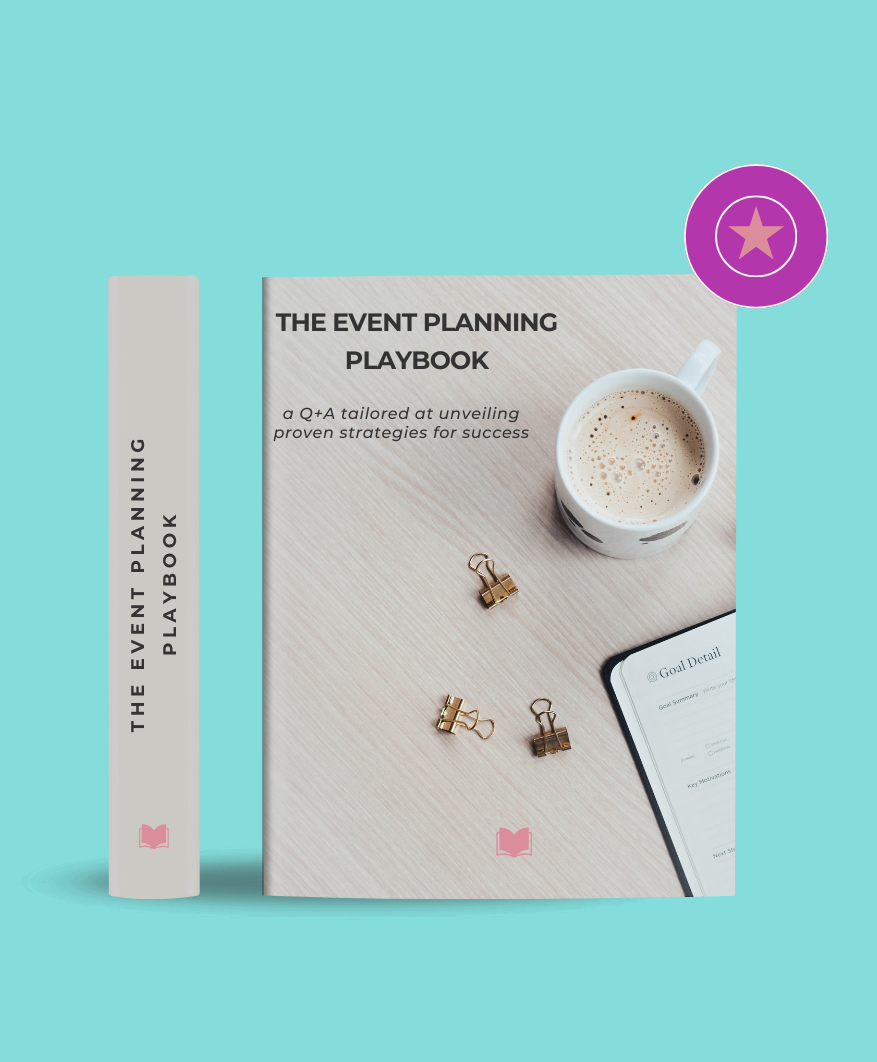
In the world of event planning, the real heroes are the Producers and the Project Managers. They are the ones who take care of the myriad details, the ones who ensure that every component aligns with perfection, and the ones gifted at adapting to unexpected changes. Their ability to judge diverse tasks, anticipate potential pitfalls while maintaining a cool-as-a-cucumber attitude when handling the whirlwind of event logistics is nothing short of indispensable. So today, we’re putting a spotlight on our Producer, Isabelle, and our Project Manager, Samantha, as they share tips and strategies on how to navigate the intricate landscape of event planning with finesse.
Q: What’s your favorite part about your job?
Isabelle (Producer): Seeing a project on paper at the very beginning, putting all of the puzzle pieces together throughout the planning process with our clients and fabrication team and then seeing the final result on show floor is so exciting.
Samantha (Project Manager): I thrive on the chaos and the diverse challenges that come with project managing, especially in the dynamic world of trade shows. Every day brings something new, and the variety of tasks and booths keeps things exciting.
Q: What’s the most challenging part of your role?
I: The most challenging thing is when something goes wrong that is outside of your control. For example, a crate getting damaged when being unloaded from the truck at show site and causing damage to a piece of furniture, etc. It’s nothing we haven’t seen and haven’t been able to fix, but it does cause some challenges.
S: The chaos, ironically. Despite meticulous planning, unforeseen changes from clients can turn months of preparation on its head in an instant. Adapting to these sudden shifts and ensuring everything gets done is undoubtedly the most challenging part.
Q: How do you approach the initial planning stages of a trade show or event?
I: The initial planning stages on the producer side is done after the rendering is completed and the client is happy with the design. We then confirm all the aspects of the booth in more detail, such as furniture options, carpet color, etc. All of this information is posted on our project management software and shared with our fabrication team so everyone is on the same page. We have weekly internal meetings to discuss all projects in production. We flag anything that needs immediate attention from either fabrication or the client during these meetings. In pre-planning, we consider show date, shipping details, client shipments, booth locations for power/internet, and other crucial elements.
S: The key is to know every detail of the booth and client expectations. Starting with a thorough review of the design and show regulations, I then create a timeline with deadlines for orders and shipping, always staying ahead of potential issues.
Q: What tips can you share on staying organized through event planning?
I: Keeping our PM software up to date so it can be a live reference for all team members. Responding to clients as soon as possible. Communicating any changes to the fabrication team and the client in a timely manner. Scheduling reminders for show services deadlines.
S: Lists and notes are my go-to tools. Establishing a systematic checklist for each task helps maintain order. Of course, having a memory for details is a great asset, too.
Q: How do you handle logistics and coordination on the day of the event?
I: We always send a summary email to our team and clients before the installation. The email typically includes installation and dismantle dates/times, supervisor’s contact information, and any other important information or reminders. It always helps to know when our clients plan on arriving at the show site so that we can ensure the booth is finished and ready to go by then.
S: Ensuring the Field Service Kit is in the hands of both my team and the labor team a week before installation is crucial. This kit contains every conceivable detail, leaving nothing to chance. Common issues like electrical and orientation errors can be avoided by triple-checking with the client and the show.
Q: Tips for maintaining relationships with stakeholders?
I: Clear communication is key for everything. Understanding expectations on both sides.
A: Communication is key. Regular updates and transparency about any issues or delays go a long way. Building trust through reliability and consistency is crucial in maintaining positive relationships with stakeholders.
Q: Is there any technology or apps that you recommend for event planning and organization?
I: We use a PM software system called Monday.com and use Zoom for our calls with clients and internally. Both help us stay organized and communicate effectively.
S: I’m a fan of the remarkable 2 tablet for note-taking, but I also leverage Monday and Smartsheet for detailed project tracking. These platforms facilitate collaboration by allowing me to share crucial information with the team. Additionally, Slack proves invaluable for real-time communication, especially when specific people need to be informed about issues or delays in specific jobs.
In Conclusion…
From the initial stages of turning concepts into reality to handling unexpected challenges on the day of the event, producers and project managers navigate the complex landscape of event planning with finesse. Their ability to thrive in chaos, adapt to changes, and meticulously plan every detail highlights their indispensability in the field.
Communication emerges as a common thread in their approach, emphasizing the importance of clear and transparent interaction with clients and team members. Whether dealing with unforeseen challenges or maintaining relationships with stakeholders, effective communication is the key to success. Additionally, staying organized is a shared mantra, with Isabelle and Samantha relying on tools like Monday.com, Zoom, Smartsheet, and Slack to streamline processes and ensure collaboration. Their use of technology reflects a commitment to efficiency and staying ahead of potential issues.
As we celebrate Isabelle and Samantha’s dedication and expertise, their tips and strategies provide valuable insights for anyone navigating the intricate landscape of event planning. In an industry where success hinges on attention to detail, adaptability, and effective communication, these professionals stand as shining examples of excellence.

